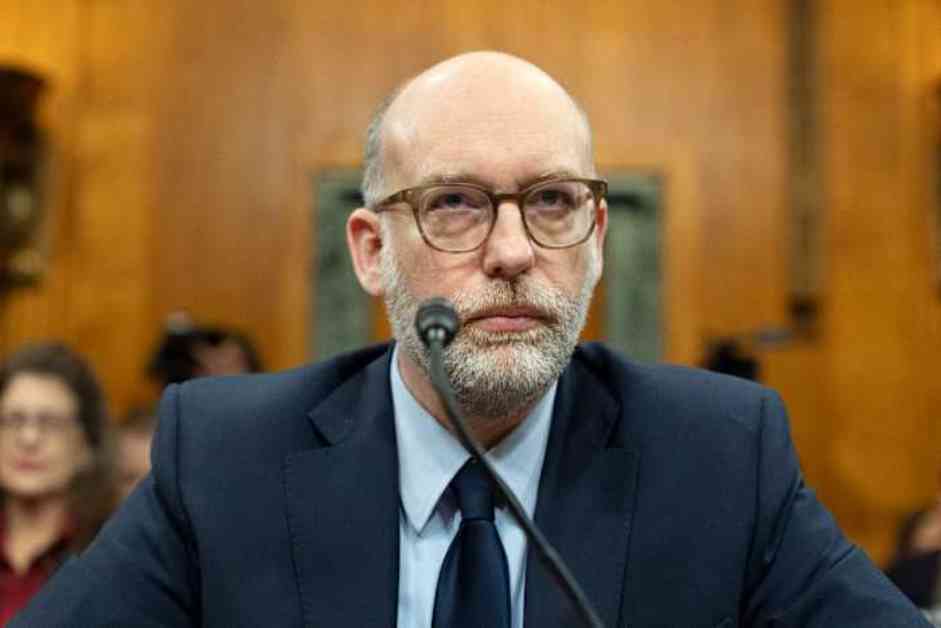The Trump administration has issued a directive to halt almost all operations of the Consumer Financial Protection Bureau (CFPB), effectively putting a stop to the agency’s vital work in safeguarding consumers following the 2008 financial crisis and subprime mortgage-lending scandal. Russell Vought, the newly appointed Director of the Office of Management and Budget, conveyed this directive to the CFPB, instructing the agency to cease work on proposed rules, suspend the effective dates of finalized rules, halt investigative activities, and refrain from initiating new investigations.
This move has sparked widespread controversy, as the CFPB has been a subject of contention ever since its inception under President Barack Obama as part of the 2010 financial reform legislation aimed at addressing the aftermath of the 2007-2008 financial crisis. The agency has been lauded for its efforts in securing nearly $20 billion in financial relief for American consumers through various means like debt cancellations, compensations, and reduced loans. However, it has also faced criticism and opposition from conservatives and the financial industry.
Impact on Consumer Protection
The directive to effectively shut down the CFPB has elicited strong reactions from various quarters. Dennis Kelleher, President of Better Markets, an advocacy group, emphasized the crucial role of the CFPB in protecting consumers from financial predators and unscrupulous practices. He noted that the bureau’s enforcement actions have been instrumental in safeguarding the interests of millions of Americans, irrespective of their political affiliations. Kelleher’s comments underscore the significance of the CFPB’s mission and the potential consequences of curtailing its operations.
The administration’s decision to halt the CFPB’s activities also underscores the broader tensions between President Trump’s promises to lower costs for working-class families and his administration’s stance on government regulation. The move comes at a time when the CFPB was working on implementing proposals to cap credit card interest rates, a measure aimed at providing relief to consumers grappling with high-interest debts. The directive raises concerns about the future of consumer protection initiatives and the administration’s approach to financial regulation.
Political Backlash and Future Outlook
The decision to suspend the CFPB’s operations has drawn sharp criticism from lawmakers and consumer advocates, who view it as a setback for consumer protection efforts. Senator Elizabeth Warren, a key proponent of the CFPB’s establishment, has condemned the administration’s move, accusing it of prioritizing the interests of big banks and corporations over those of ordinary Americans. Warren’s remarks highlight the ideological divide surrounding the CFPB’s role and its impact on financial industry practices.
The abrupt halt in the CFPB’s work reflects a broader trend of the Trump administration’s efforts to scale back federal agency functions deemed excessive. The move to curtail the CFPB’s operations comes in the wake of other similar directives aimed at reining in regulatory activities across various sectors. The implications of these decisions for consumer protection, financial oversight, and regulatory enforcement remain uncertain, raising questions about the future trajectory of federal agencies under the current administration.
In conclusion, the Trump administration’s directive to halt the Consumer Financial Protection Bureau’s work has significant implications for consumer protection, financial regulation, and government oversight. The move has sparked debates about the role of federal agencies in safeguarding consumer interests, the impact of regulatory changes on the financial industry, and the broader implications of scaling back regulatory functions. As the CFPB faces an uncertain future, the ongoing discussions surrounding its mandate, effectiveness, and relevance in the current regulatory landscape underscore the complexities of balancing consumer protection with industry interests in a rapidly evolving financial environment.















